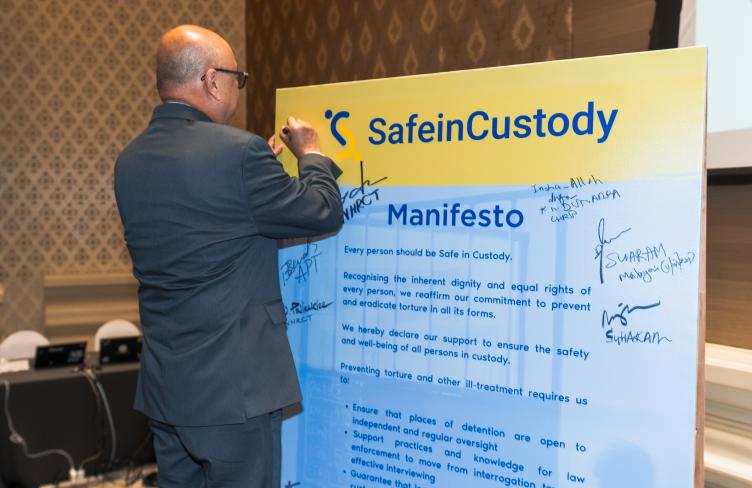
Almost 40 per cent of detainees interviewed by the Public Defense Office of Rio de Janeiro suffered physical or psychological aggression or threats during the first hours of their custody, according to a report compiling two years of data.
Of the 23,497 detainees interviewed by public defenders prior to custody hearings between September 2017 and September 2019, a total of 38.3 per cent reported some form of abuse shortly after their arrest.
Among those who experienced violence, more than 80 per cent were black. In 60 per cent of cases, the perpetrator was a member of the Military Police.
“Many detainees, however, downplay the violence they experience as a ‘normal’ part of being arrested and detained,” APT National Representative and Senior Legal Adviser, Brazil, Sylvia Dias said.
These issues were raised in a webinar organised by the Public Defense Office of Ceará, in collaboration with the APT, the National Council of Justice and the Public Defense Office of Rio de Janeiro.
More than 30 public defenders from Ceará took part in the event, which explored how they can use their role to prevent torture through custody hearings.
“As we discussed in the webinar, one of the important roles of a public defender is to assure their client that police brutality of any kind is illegal and can be raised directly with a judge during a custody hearing,” Ms Dias said.
Read how allegations of torture fell significantly after custody hearings were suspended in Brazil because of COVID-19, and the successful advocacy efforts of civil society organisations, including the APT, to reaffirm the vital need for face-to-face hearings.
Custody hearings have been held in Brazil since 2015 to determine the legality of a person’s arrest and decide whether the person should be sent to pretrial detention.
As detainees are presented before the court within 24 hours of arrest, judges are able to ask about the conditions surrounding their arrest and to verify any evidence of physical or psychologic torture or ill-treatment.
Public defenders must interview detainees in private prior to the hearing, assuring their confidentiality, and inquire into any alleged police violence or abuse. They must also properly document any evidence available.
As part of the webinar, the Public Defense Office of Rio de Janeiro presented its institutional guidelines – now followed by all public defenders in the state – on how to interview detainees about allegations of torture or ill treatment and then systematize and record that information in an institutional database.
“In addition to advocating on behalf of individuals who have experienced abuse, public defenders can use the data they collect to identify patterns of police violence, those most at risk and strategic interventions that could break those cycles. This is a key preventive dimension of custody hearings.” Ms Dias said.
“Reforming laws, policies and procedures to prevent torture from happening in the first place is the best way we can protect the safety and dignity of people held in detention.”
Ms Dias said she hoped institutional protocols like the one developed in Rio de Janeiro will inspire other public defense offices in their efforts to strengthen safeguards and curb police violence.
“The APT is committed to supporting public defense offices across the country, including the Defense Office of Ceará, to develop practical initiatives that respond to the issues they see and the resources at their disposal,” she said.


